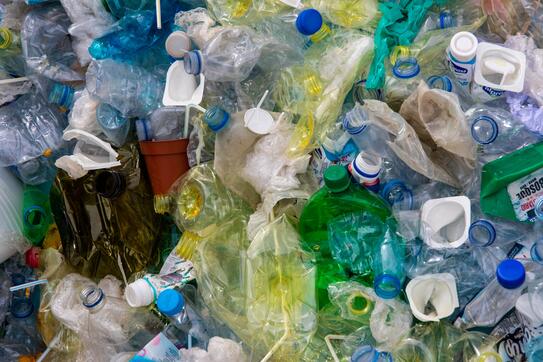NEW YORK, NY – With the rate and devastation of natural disasters increasing across the world, this year’s Earth Day puts an even greater emphasis on what consumers can do in their everyday lives to mitigate the effects of climate change. One way consumers can help is by recycling, which reduces emissions from energy consumption and incinerators, reducing methane emissions from landfills, and increasing storage of carbon in trees. However, many of us fail to do it for a variety of reasons – currently only 35 percent of Americans recycle. A new study from Columbia Business School offers a way to encourage more recycling: researchers find that consumers are more likely to recycle a product if it has anthropomorphic (human-like) qualities. If companies implement these changes on their products, it could lead to increased rates of recycling.
The study, "Recycle me!" Product Anthropomorphism Can Increase Recycling Behavior, shows that consumers are more likely to recycle an anthropomorphized product because it prompts them to think about why they should recycle the item as opposed to the steps it would take to recycle it. Professor Gita V. Johar and doctoral students Alisa Y. Wu and Maayan S. Malter examine why people do not recycle and explore how a simple intervention of making products more human-like can encourage people to recycle more. This research has important implications for addressing climate change and shows that companies can help encourage their consumers to reduce waste by altering their products’ characteristics to be more human.
“Recycling can be confusing, and consumers may be thinking about how to recycle and what actions they need to take in the moment, which can be overwhelming,” said Gita V. Johar, the Meyer Feldberg Professor of Business at Columbia Business School. “A simple product design can make that choice easier by nudging consumers to focus on the positive outcome of recycling, rather than the possibly costly process of recycling. By keeping this idea in mind, companies can help consumers be more sustainable.”
Professor Johar and the research team conducted five lab, field, and online experiments to analyze if and how anthropomorphizing influences recycling behavior, using data from participants recruited from Amazon Mechanical Turk, a crowdsourcing website for businesses, SONA Systems, and Facebook Ad Manager. Within each of the studies, participants were given various products and social media advertisements, either anthropomorphized or non-anthropomorphized. They were then tested on whether or not they would recycle the products. Experiments ranged from participants having to decide whether to recycle or throw away cookies wrapped in paper with randomized descriptions saying, “This is a cookie,” or, “I’m a cookie,” to clicking through ads about recycling that were anthropomorphized or not anthropomorphized and seeing which ad outperformed the other. Across multiple experiments the study finds that anthropomorphizing products causes consumers to empathize with the product. They also find that giving products a human trait causes consumers to think more about why a product should be recycled rather than how to recycle it.
Key Findings Include:
- Anthropomorphized Products Are More Likely to be Recycled. The research concluded that the reason anthropomorphism is so effective when it comes to recycling is because it likely increases recycling behavior due to increased empathy for the product.
- People Focus Too Much on How to Recycle as Opposed to Why They Should. This research not only identifies a driver of recycling – product anthropomorphism – but it also illustrates that people don’t recycle enough because they focus on the inconvenience of recycling as opposed to the long-term benefits. Anthropomorphism intervenes in a way that makes people focus on the end goal of recycling.
- Policymakers and Companies Can Increase Recycling Rates. The study contributes to a renewed optimism in recycling and the positive impact consumers can have on the future of sustainability. This research could potentially push marketers and even policy makers to increase consumer recycling and fight climate change.
“Recycling and other types of campaigns can be confrontational, which people don’t like,” said Professor Johar. “Anthropomorphizing is a more subtle intervention that can be a great tool for marketers to use.”
To learn more about the cutting-edge research being conducted at Columbia Business School, please visit www.business.columbia.edu
